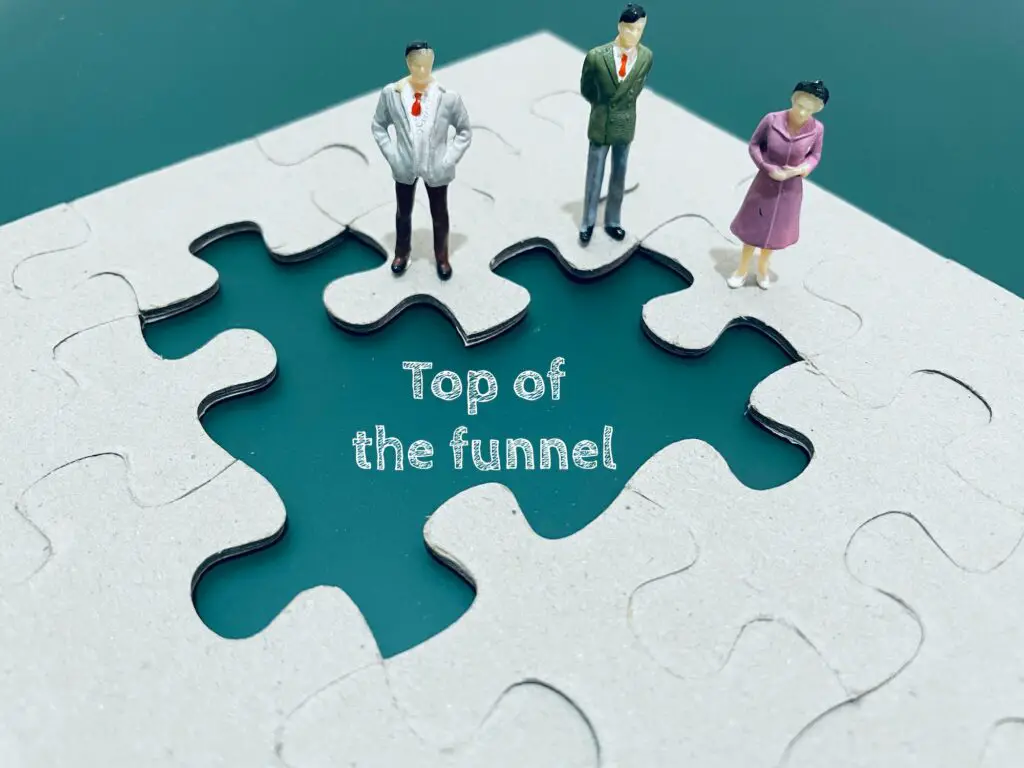Introduction
As an experienced marketer, I have witnessed the evolution of countless sales strategies over the years. One approach that has consistently proven effective in converting potential customers into loyal advocates is the sales funnel. In this article, we will delve into the concept of the sales funnel, exploring its different stages, and key components, and why it is an indispensable tool for any marketing professional.
What is a Sales Funnel?
At its core, a sales funnel is a visual representation of the journey a customer takes from the initial contact with a brand to the final purchase. It outlines the various stages a customer goes through, starting with awareness of the product or service and ending with them becoming loyal customers or brand advocates.
The Stages of a Sales Funnel
1. Awareness: This is the top of the funnel, where potential customers become aware of your brand’s existence. They may discover your offerings through various channels like social media, blog posts, or search engine results.
2. Interest: Once prospects become aware of your brand, the next stage is to capture their interest. This involves providing valuable content, engaging with them through personalized messages, and showcasing the unique selling points of your products or services.
3. Consideration: This is where potential customers actively consider your offerings. They compare your brand with competitors, evaluate pricing options, read reviews, and possibly interact with your sales team for more information.
4. Intent: At this stage, potential customers indicate their intention to make a purchase. They might engage in actions like adding items to their cart, requesting a quote, or signing up for a free trial.
5. Evaluation: Before making the final decision, customers often want reassurance that they are making the right choice. They seek testimonials, case studies, and references to validate their decision.
6. Purchase: This is the ultimate goal of the sales funnel. The customer converts into a paying customer, making a purchase, or signing a contract.
7. Loyalty: The customer journey doesn’t end with a purchase. Building long-term relationships and fostering customer loyalty is crucial. This stage involves providing exceptional customer service, follow-ups, and personalized offers to keep customers engaged.
Key Components of a Sales Funnel

To design an effective sales funnel, it is essential to understand its key components:
1. Customer Persona: Creating detailed buyer personas helps identify your target audience and tailor your marketing efforts accordingly.
2. Lead Magnet: A lead magnet is an enticing offer, such as free e-books, webinars, or exclusive content, that attracts potential customers and encourages them to provide their contact information.
3. Landing Page: A well-designed landing page is crucial for capturing leads. It should have a clear call-to-action, concise information, and an appealing design that aligns with your brand’s visual identity.
4. Email Campaigns: Nurturing leads through personalized email campaigns is an effective way to move them through the sales funnel. These campaigns should provide value, address pain points, and gently guide prospects toward the next stage.
5. Sales Pages: At the consideration and intent stages, well-crafted sales pages play a pivotal role in convincing potential customers to make a purchase. These pages should highlight the unique value proposition, offer social proof, and provide a seamless user experience.
6. Remarketing: Remarketing campaigns help recapture the attention of potential customers who have shown initial interest but haven’t made a purchase. By displaying targeted ads across various platforms, you can remind them of your offerings and nudge them toward conversion.
7. Analytics and Testing: Constantly analyzing data and testing different strategies is crucial for optimizing your sales funnel. Utilize analytics tools to measure key metrics like conversion rates, bounce rates, and customer behavior to identify areas for improvement.
The Importance of a Sales Funnel
Why is a sales funnel essential for marketers? Here are a few reasons:
1. Efficient Resource Allocation: By understanding the different stages of the sales funnel, you can allocate your resources effectively. Tailoring your marketing efforts to each stage allows you to maximize your return on investment and focus your attention on prospects more likely to convert.
2. Streamlined Customer Journey: A well-designed sales funnel creates a seamless and personalized customer journey. By guiding potential customers through the various stages, you can build trust, provide relevant information, and address any concerns they may have, ultimately leading to increased conversion rates.
3. Improved Lead Nurturing: The sales funnel helps ensure proper lead nurturing, increasing the probability of closing deals. By delivering targeted content based on the stage of the funnel, you can provide the information potential customers need to move forward, fostering a deeper connection with your brand.
4. Better Sales Forecasting: Understanding the average conversion rates at each stage of the sales funnel enables accurate sales forecasting. By analyzing historical data and adjusting strategies accordingly, marketers can set realistic goals and identify areas for improvement.
Conclusion
In the ever-changing landscape of marketing, the sales funnel remains an indispensable tool for marketers. It provides a comprehensive framework to guide potential customers through each stage of the buyer’s journey, from awareness to loyalty. By understanding the key components and stages of a sales funnel, marketers can efficiently allocate resources, streamline the customer journey, and increase conversion rates. Implementing a well-structured sales funnel is essential for any marketing professional aiming to achieve long-term success. As the saying goes, “Don’t leave your sales to chance; guide them through the funnel!”

